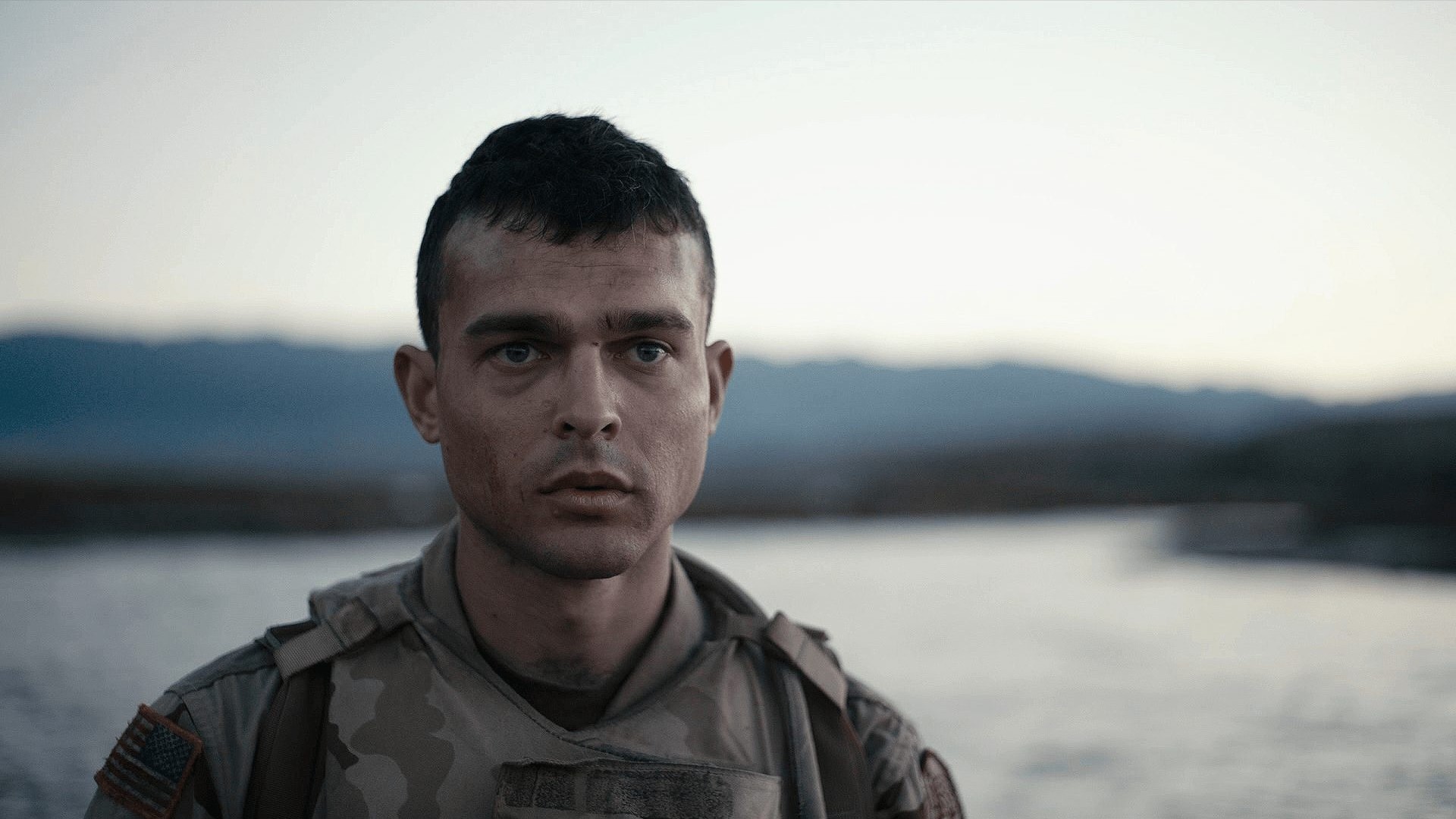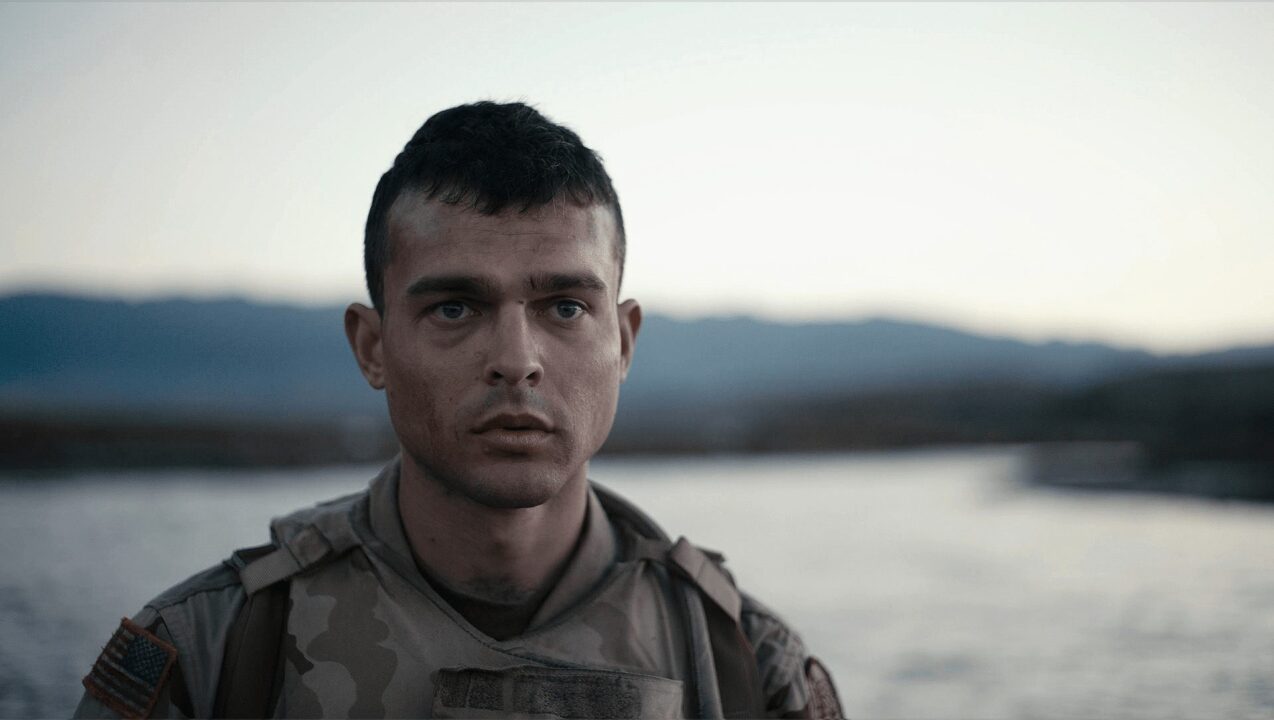This review originally ran on February 2, 2017, during the Sundance Film Festival
As American military presence in the Iraq war has fallen out of the more day-to-day news cycle (perhaps the current news circuit might be focused on situations domestic instead of abroad), so too have war dramas in the cinematic space that continue to explore the traumatic effects war plays on those in the field.
In The Yellow Birds, based on the 2012 novel of the same name by Kevin Powers and adapted by David Lowery (Pete’s Dragon) and R.F.I. Porto, director Alexandre Moors (Blue Caprice) explores the traumas of war through the story of a disappeared soldier and his fellow comrade who must keep his mental health in check for the sake of his own freedom.
The Yellow Birds opens with weapons brandished soldiers wading their way through a barren Iraq landscape as silhouetted shadows, voiceover monologue describing how soldiers like these may already be dead long before they’ve been killed. Such ghosts are what two young soldiers, Brandon Bartle (Alden Ehrenreich), all of 21 years old, and Daniel Murphy (Tye Sheridan), an even younger 18, face as newly enlisted soldiers in the Army. When the two are deployed to Iraq, under the command of the steadily unhinged Sergeant Sterling (Jack Huston), the more hard-shelled “Bartle” takes to looking out for the more sensitive “Murph” in the war-torn landscape. Yet, as the stresses of war amount, where combat and killing become a more prevalent and consuming reality, cracks begin to show in the fragility of Murph’s toughness. His mental stronghold begins to give, leading to physical and emotional instability that worries Bartle and company, which eventually becomes the root cause of his disappearance in the field.
‘The Yellow Birds’ opens with weapons brandished soldiers wading their way through a barren Iraq landscape as silhouetted shadows, voiceover monologue describing how soldiers like these may already be dead long before they’ve been killed.
What starts out as a war drama cuts back and forth from flashback to the present, as the wartime events in Iraq are cut in between Bartle’s return back home. This creates a vacuum of a story in which Murph is disappeared, adding intrigue to the mysterious circumstances. It certainly alarms Murph’s mother Maureen (Jennifer Aniston) who pleads her case to the Army. And a rattled Bartle is clearly shaken after returning home, which his mother Amy (Tony Collette) tries to reconcile. Bartle’s depression soon becomes inescapable and all-consuming, leading him to his breaking point and finally addressing what happened overseas to the Army and Bartle’s mom.
One of the strengths and most defining parts of The Yellow Birds is how it really gets into the heads of its characters. While it’s a bit stilted in its mechanics of cutting back and forth, Ehrenreich gives a fine performance and Sheridan gives a quietly moving performance as well. The perspective of The Yellow Birds is an emotionally engaging one that offers a fresh, new look at wartime films from the perspective of young and impressionable soldiers.
‘The Yellow Birds’ is rated R for war violence, some grisly images, sexual material, and language throughout. 110 minutes. Opening this Friday at Laemmle’s Royal Theatre.
Ryan Rojas
Ryan is the editorial manager of Cinemacy, which he co-runs with his older sister, Morgan. Ryan is a member of the Hollywood Critics Association. Ryan's favorite films include 2001: A Space Odyssey, The Social Network, and The Master.


